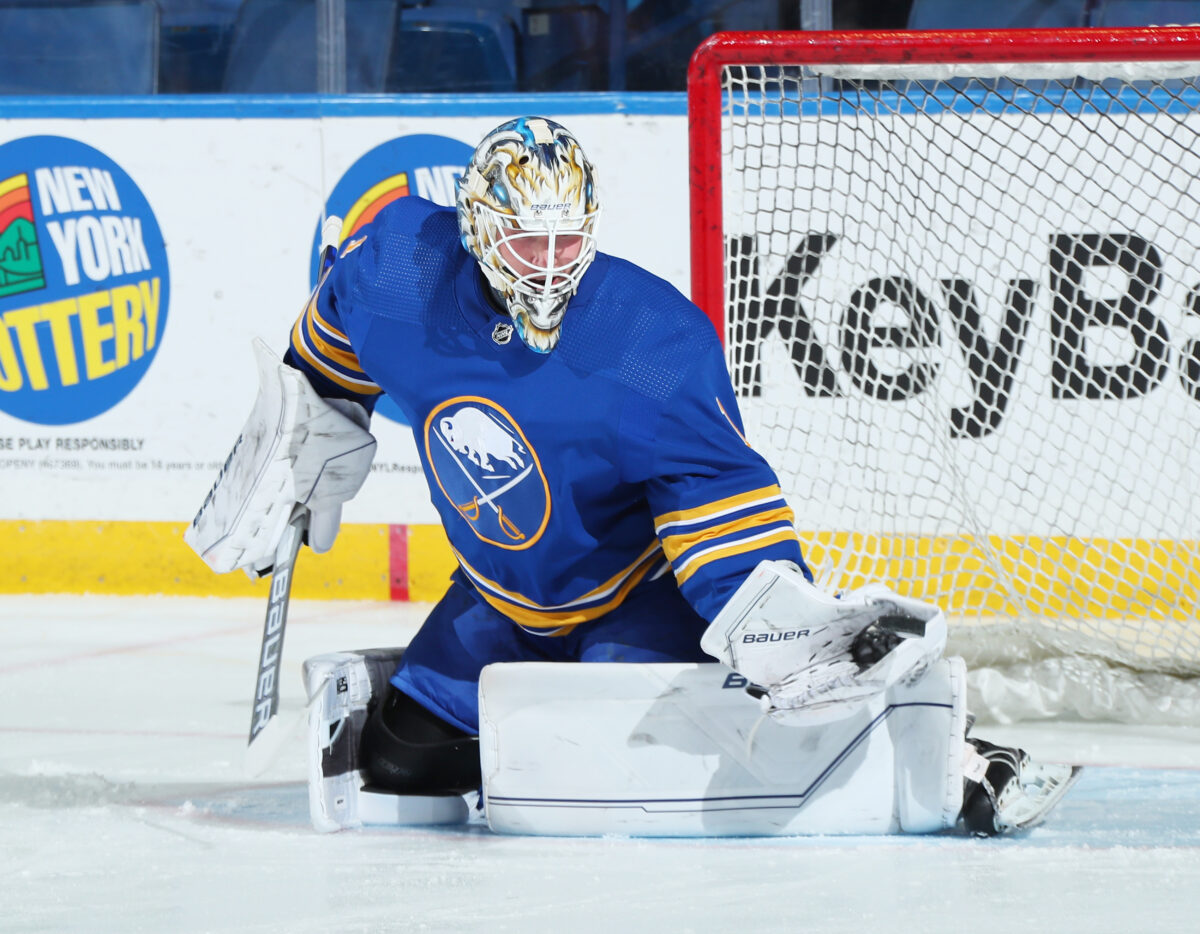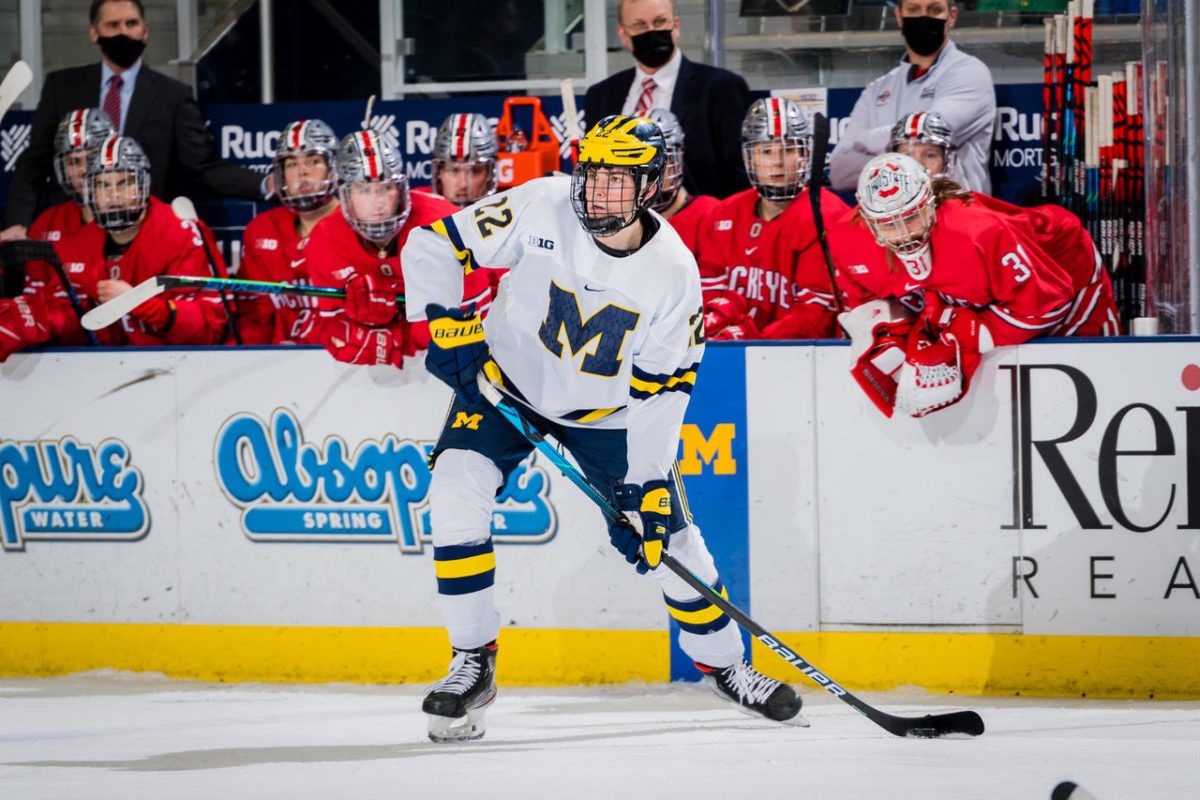The Buffalo Sabres have been sellers at the trade deadline for most of the last decade. This season was different, with General Manager Kevyn Adams only making one move around the deadline, trading Robert Hagg to the Florida Panthers for a sixth-round pick. Adams chose to hold onto players on expiring contracts like Colin Miller, Cody Eakin and Craig Anderson. In previous seasons, we likely would have seen some, if not all, of these players departing Buffalo. In a change of strategy, Adams kept this team together, allowing them to continue cultivating a winning culture. This renewed approach was a necessary one, and refreshing at that.
This change was likely spurred on by the Sabres’ recent success. They have been one of the NHL’s better teams during the month of March, culminating in a record of 8-3-3. They were no fluke victories either, as they beat future playoff teams like the Toronto Maple Leafs, Calgary Flames and Pittsburgh Penguins, not to mention they’re on a seven-game point streak.

The leap the Sabres are making has been exciting to watch. Players like Alex Tuch, Tage Thompson, Rasmus Dahlin and Jeff Skinner are having excellent seasons for Buffalo, and the organization appears to have a core it can build around.
By keeping the group intact at the deadline, Adams has given his team a chance for a few different outcomes to finish the season. First, it can keep competing, while reaffirming its commitment to success heading into next season. Second, the locker room can continue to grow and bond without worrying about what the team will look like next year. For the first time in years, winning games past the deadline will have a long-term impact, even if it does not mean playoffs this season.
Impact on the Rochester Americans
The Sabres’ stance at the deadline has monumental repercussions on the Rochester Americans, who are currently gearing up for the postseason, and with a talented roster they could be in position for a deep run.

If the Sabres had moved players like Miller, Eakin or Anderson, they likely would have filled those roster spots with players from Rochester. Seeing players like Jack Quinn, JJ Peterka, or Ukko-Pekka Luukkonen play in Buffalo this season would have been an exciting glimpse into the future, but letting them continue their development in Rochester this year is the right call.
Related: Sabres’ Best Goaltending Options Moving Forward
They all will be able to gain valuable experience in a playoff series, and also what it takes to win games towards the end of a season when teams are fighting to get into the postseason. While they would have won games in Buffalo, and been a part of building a winning culture here, the Sabres are nowhere near the playoffs, and they would be missing out on the experience that comes with a playoff race.
Adams continued the Rochester rebuild started by Jason Botterill, making it a vessel for player development. Having the current administration continue this reliance on the Americans has been a sizable contribution to the culture shift as well, both with commitment to keeping prospects there to develop and success at the AHL level becoming a priority for the organization once again.
Impact on Future Players
The shift in culture will also have an effect on future Sabres players. While the Sabres have yet to sign any NCAA players, most fans are expecting to see Owen Power in a Sabres uniform when the Michigan Wolverines are finished at the Frozen Four. If Power, the first overall pick in 2021, were to join the Sabres at this time in years prior, he would be joining a team drowning in mounting losses.

This year, as we’ve seen, there is a different set of circumstances around Buffalo. Winning games naturally brings a winning culture, and inserting Power and other new players into this group will advance the upward progression. They can confidently place prospects into the lineup and not have to worry about losses creating a negative attitude around this team and its future.
Even in the offseason, playing to win down the stretch will show free agents that the Sabres are serious about building something great here. They have players in place already who can not only be competitive, but win games on a nightly basis.
More than anything else, this was a vote of confidence. The Sabres can now move away from perennially selling off everyone at the deadline and take a step towards competing for a playoff spot.
